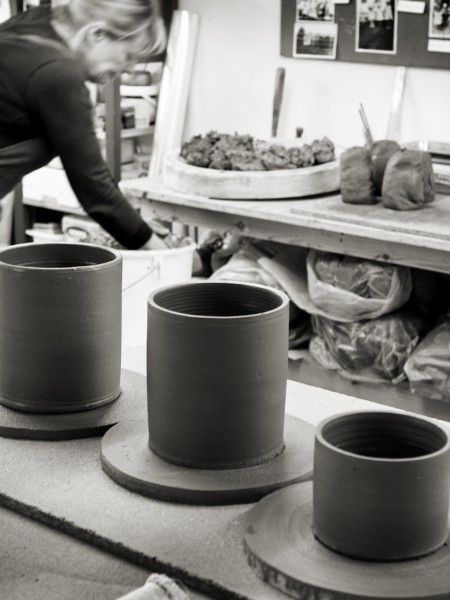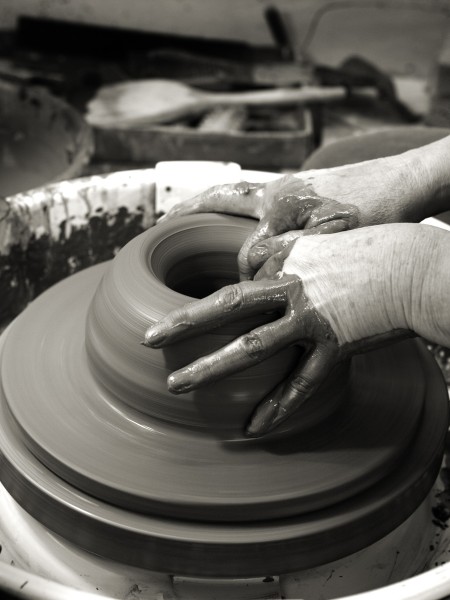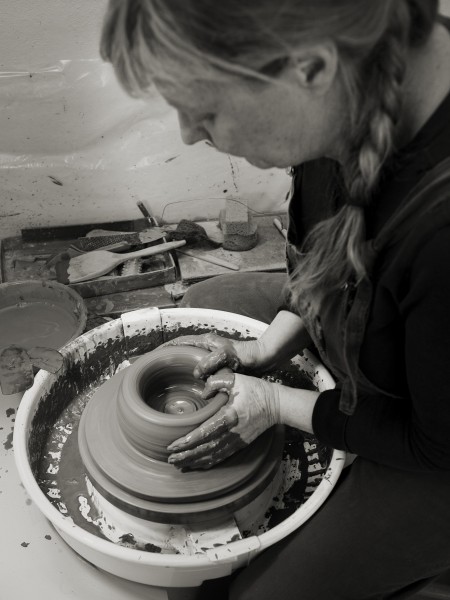Q. What is your principle professional skill?
A. Ceramics
Q. Could you tell us a little about it?
A. I work with Raku and smoke fired ceramics. Also wood fired earthenware, for which I have built a kiln, but the ceramics is still very much in the developing phase.
Q. How long have you been practising your skill?
A. For 35 years.
Q. How did you learn your skill? How long did it take?
A. One semester of throwing skills. One year in Carl Malmstens School of Arts and Crafts. 20 years of teaching evening classes and Art school ceramics departments.
Q. Are there any other people in the region doing what you do?
A. Yes, about three people.
Q. How important do you think your skill is for the region?
A. I think it is very important. I like to think it makes a difference that I can show my skills and therefore show that the same material can be used in a different way. Create an opportunity for dialogue.
Q. How has your profession evolved over the last few decades?
A. Not sure. I think it is us people who change.
Q. What are the main differences between now and when you started?
A. Again, us people.
I am torn between views. I come from Sweden were my skill is highly regarded in society and we don’t have so many opportunities to be educated. We have only three universities, which means it is very difficult to access them. We have Folkhögskola which is adult learning for people who want to change career later in life (brilliant) and a number of free schools like the one I attended.
Then I moved to Britain who have far to many universities with ceramics departments churning out people with average levels of knowledge.
Having said that, Scotland Has NONE as far as I know!
I am also struggling with the British culture of being terrified of constructive criticism and any kind of judgements. I won’t go further, it would take a whole day!
Q. How do you anticipate the future to be for your skill?
A. I guess I think it will always be there. It always have been.
Q. How important do you think it is to pass the skill on to the next generation?
A. Extremely important!
Q.. How could that be achieved?
A. By having an apprentice scheme. There is one in England called Adopt a Potter which takes in two-three apprentices each year. Not much use. It is also for students who already have an education.
Q. Would you be prepared to train someone?
A. I am already doing that. I have a student coming to my workshop two days a week.
Q. Do you think that society should feel obliged to find a way of preserving such skills?
A. Yes!
Q. Does having a skill change the way you see the world.
A. Yes.
Q. What kind of rewards do you get from your skill, monetary and/or otherwise?
A. Great satisfaction!
Q. What impact has broadband and the internet had on your work?
A. Because I live rural it has a great impact. It would be hard to find time to travel around with pots to galleries.
Q. How do you use the internet for your work?
A. Contact with galleries, other ceramicists and things like this.
Q. What, if anything, could be done to help to preserve your skills and support your profession.
A. That is a subject for a workshop.


